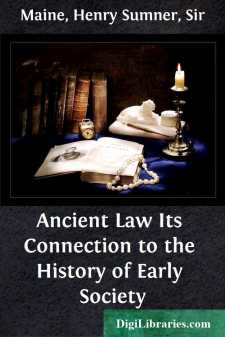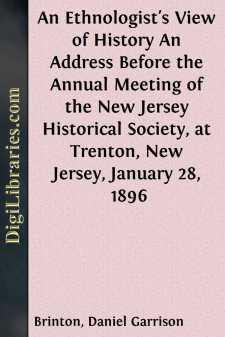History
- Africa 30
- Americas (North Central South West Indies) 50
- Ancient 68
- Asia 58
- Australia & New Zealand 8
- Canada 41
- Caribbean & West Indies 1
- Civilization 20
- Eastern Europe 12
- Europe 310
- Expeditions & Discoveries 60
- General
- Historical Geography 1
- Jewish 9
- Latin America 3
- Medieval 8
- Middle East 13
- Military 248
- Revolutionary 8
- Study & Teaching 5
- United States 353
- Western Europe 56
- World 13
General Books
Sort by:
by:
Sidney Lee
I I Without "the living comment and interpretation of the theatre," Shakespeare's work is, for the rank and file of mankind, "a deep well without a wheel or a windlass." It is true that the whole of the spiritual treasures which Shakespeare's dramas hoard will never be disclosed to the mere playgoer, but "a large, a very large, proportion of that indefinite all" may be...
more...
BRUMAIRE. THE OVERTHROW OF THE FRENCH DIRECTORY. The eighteenth century went out with the French Directory, and the nineteenth came in with the Consulate. The coincidence of dates is not exact by a year and a month and twenty-one days. But history does not pay much attention to almanacs. In general our century arose with the French Consulate. The Consulate was the most conspicuous political fact of...
more...
INTRODUCTION No one who is interested in the growth of human ideas or the origins of human society can afford to neglect Maine's Ancient Law. Published some fifty-six years ago it immediately took rank as a classic, and its epoch-making influence may not unfitly be compared to that exercised by Darwin's Origin of Species. The revolution effected by the latter in the study of biology was...
more...
The intelligent thought of the world is ever advancing to a fuller appreciation of the worth of the past to the present and the future. Never before have associations, societies and journals devoted to historical studies been so numerous. All times and tribes are searched for memorials; the remote corners of modern, medieval and ancient periods are brought under scrutiny; and going beyond these again,...
more...
The making of harpsichords flourished in Italy throughout the 16th and 17th centuries. The Italian instruments were of simpler construction than those built by the North Europeans, and they lacked the familiar second manual and array of stops. In this paper, typical examples of Italian harpsichords from the Hugo Worch Collection in the United States National Museum are described in detail and...
more...
Chapter I.Discovery of New South Wales.--Arrival of a Colony there from England.-- Obstructions calculated to retard the Progress of the Settlement.-- Departure of Governor Phillip.--Intervening Governors, until the Arrival of John Hunter, Esq. and his Assumption of the Government.-- Printing Press set up.--Cattle lost, and Discovery of their Progeny in a wild State.--Playhouse opened.--Houses...
more...
by:
Harriett Bradley
INTRODUCTION The enclosure movement—the process by which the common-field system was broken down and replaced by a system of unrestricted private use—involved economic and social changes which make it one of the important subjects in English economic history. When it began, the arable fields of a community lay divided in a multitude of strips separated from each other only by borders of unplowed...
more...
PREFACE At the suggestion of the Cambridge Philosophical Society, the Syndics of the University Press decided in March, 1908, to arrange for the publication of a series of Essays in commemoration of the Centenary of the birth of Charles Darwin and of the Fiftieth anniversary of the publication of "The Origin of Species". The preliminary arrangements were made by a committee consisting of the...
more...
CHAPTER I FREEDOM OF THOUGHT AND THE FORCES AGAINST IT IT is a common saying that thought is free. A man can never be hindered from thinking whatever he chooses so long as he conceals what he thinks. The working of his mind is limited only by the bounds of his experience and the power of his imagination. But this natural liberty of private thinking is of little value. It is unsatisfactory and even...
more...
by:
Jacob Kainen
The Contemporary View of Bewick After 1790, when his A general history of quadrupeds appeared with its vivid animals and its humorous and mordant tailpiece vignettes, he was hailed in terms that have hardly been matched for adulation. Certainly no mere book illustrator ever received equal acclaim. He was pronounced a great artist, a great man, an outstanding moralist and reformer, and the master of a...
more...











